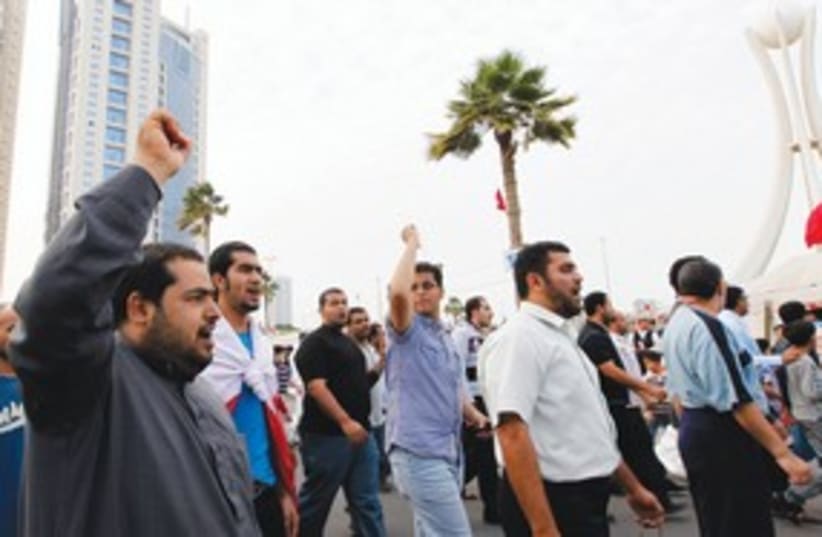RELATED:Tunisia names new gov’t, disbands security serviceTerrorism: Whither al-Qaida?The new “Coalition for a Republic,” made up of Al-Haq, Wafa and the Freedom Movement, called for peaceful change through a decentralized movement of civil disobedience and resistance.Consisting of groups much smaller than the main opposition Wefaq movement, the new coalition risks splitting the broader Shi’ite opposition movement that is demanding an elected government and a true constitutional monarchy, as well as better access to jobs within the system.“This tripartite coalition adopts the choice of bringing down the existing regime in Bahrain and establishing a democratic republican system,” Al-Haq leader Hassan Mushaimaa told reporters at Manama’s main Pearl Square, where protesters are camped out. “The monarchy has failed to bring down the revolution by force, and it now aims... to coopt its legitimate demands through murky political games and... by inciting chaos.”No stranger to sporadic protests and rioting, Bahrain has been gripped by the worst unrest since the 1990s after a youth movement took to the streets last month, emboldened by revolutions that toppled the leaders of Tunisia and Egypt.Seven people were killed in an ensuing clampdown by security forces early in the protests, but the situation has since calmed.In Kuwait, meanwhile, hundreds of protesters gathering outside the main government building to demand sweeping changes on how the oil-rich country is run, The Associated Press reported.
Bahrain’s Shi’ites want Sunni monarchy toppled
Protests hit Kuwait for first time; Syria releases dissident judge; Egyptian court rejects Mubarak's appeal against seizure of funds.

RELATED:Tunisia names new gov’t, disbands security serviceTerrorism: Whither al-Qaida?The new “Coalition for a Republic,” made up of Al-Haq, Wafa and the Freedom Movement, called for peaceful change through a decentralized movement of civil disobedience and resistance.Consisting of groups much smaller than the main opposition Wefaq movement, the new coalition risks splitting the broader Shi’ite opposition movement that is demanding an elected government and a true constitutional monarchy, as well as better access to jobs within the system.“This tripartite coalition adopts the choice of bringing down the existing regime in Bahrain and establishing a democratic republican system,” Al-Haq leader Hassan Mushaimaa told reporters at Manama’s main Pearl Square, where protesters are camped out. “The monarchy has failed to bring down the revolution by force, and it now aims... to coopt its legitimate demands through murky political games and... by inciting chaos.”No stranger to sporadic protests and rioting, Bahrain has been gripped by the worst unrest since the 1990s after a youth movement took to the streets last month, emboldened by revolutions that toppled the leaders of Tunisia and Egypt.Seven people were killed in an ensuing clampdown by security forces early in the protests, but the situation has since calmed.In Kuwait, meanwhile, hundreds of protesters gathering outside the main government building to demand sweeping changes on how the oil-rich country is run, The Associated Press reported.